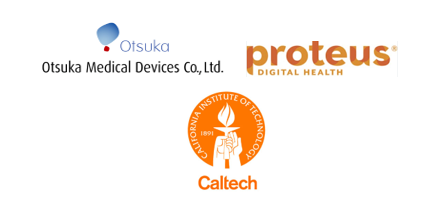Digital Pills in Healthcare

The healthcare industry is going through a fundamental revolution with the deployment of digital pills. This has led to patient monitoring, medicine compliance, and customized healthcare being transformed. For example, such tools as ingestible sensors, data analysis algorithms running on AI, and real-time tracking methods are being utilized to elicit better treatment outcomes, improve patients’ medication compliance, and increase the overall efficiency of the health care ecosystem. Providence received a push from society supporting tailored care through global healthcare initiatives, leading these technological advances to pave the way to a more connected and data-driven future.
Digital pills go a step ahead in ensuring medication adherence by giving real-time tracking of drug intake. The Internet of Things (IoT), Artificial Intelligence (AI), and blockchain are the technologies that store and process patient information, of which converting it into actionable data for the betterment of patient and medical decisions is also part.
- Smart Ingestible Sensors and Real-Time Monitoring: Digital pills, which are implanted with biosensors, have a feature that can track the ingestion of the drugs by the patients and can transmit the data to their healthcare providers. These sensors are not only client-related and thus monitor the patient's actions according to the prescription but also reduce hospital readmissions and failures of the treatments. The application of AI analytics facilitates the administration of the right dosages, and medical interventions are also personalized.
- Biometric Integration and Remote Healthcare: By integrating digital pills and biometric monitors, healthcare organizations will be able to understand the changes in patients' vital signs and other physiological signals, pH and temperature are among physiological data. This data will help in the early detection of disease and the remote monitoring of the patient, thus a win for the healthcare provider and the patient by preventing the progression of chronic disease.
- AI-Powered Data Analytics and Secure Health Records: There are AI algorithms that examine the cases of patients' adherence and thus have the possibility to forecast health issues. Additionally, the use of blockchain technology ensures that nobody will have access to the records, makes them immutable, and at the same time, providing a high level of patient confidentiality and data integrity.
Global Market Overview
As per the recent report, the Global digital pills market size was valued at USD 4.27 billion in 2023 and is projected to reach USD 8.12 billion by 2031, with a CAGR of 8.35% during the forecast period of 2024 to 2031.
The digital pills market in North America has the largest global share and is going to be the market leader with the biggest expansion. A powerful economy and advanced technologies, especially in the U.S., are expected to contribute to the region's fast-growing market. On the other hand, Europe is predicted to be the next big market due to the onset of major players like Medtronic, Proteus Digital Health Inc., and Intellicap. The effectiveness of digital pills in the area is further improved by developments in wireless communication, data analytics, and tiny sensors.
Among the leading companies in the digital pill market are 2Morrow, Otsuka Holdings, Teladoc Health, AliveCor, Abbott, Olympus Corporation, Medtronic, Smith+Nephew, Novartis, Omada Health,

Mocacare, Gentag, Zio by iRhythm Technologies, Perficient, and CapsoVision, Welldoc.
Recent Innovations
Several digital pill technology companies have come to the fore to exploit the digital pill technology in a bid to provide better patient outcomes. A few important developments are as follows: ·
- Otsuka and Proteus Digital Health: Brings Abilify Mycite, a drug-device combination product that contains aripiprazole tablets with an Ingestible Event Marker (IEM) sensor to monitor drug ingestion.
- MIT creates an ingestible, pill-shaped sensor module that can be found easily outside the human body through electromagnetic fields.
- Caltech has made tiny "smart pills" in which patients' bodies can be detected like a GPS receiver. These pills are capable of traveling through the stomach and intestines, and thus, they can help doctors track health problems. They are designed to gather patient health data, take images, and even deliver medicine.

Challenges in Adoption of Digital Pill
In spite of the advantages, a number of challenges prevent the mass adoption of digital pill technology:
- Large Development and Installation Costs – Development of digital pills involves high levels of investment in sensor technology as well as approvals.
- Privacy and Data Security Issues – Regulators and patients highlight the importance of safe handling of sensitive health information to avoid breaches.
- Regulatory and Ethical Issues – Differences in healthcare regulations between nations hinder approval and adoption procedures.
|
Strengths |
Weaknesses |
Opportunities |
Threats |
|
Real-time Monitoring |
High Cost |
Remote Patient Care |
Data Privacy Risks |
|
Improved Adherence |
Patient Resistance |
Integration with AI |
|
|
Personalized Care |
|||
|
Reduced Hospital Visits |
Future Outlook
Looking ahead, the digital pill field is set to grow as advances in AI, IoT, and personalized medicine keep evolving. You’re starting to see things like AI-driven predictions, wearable tech pairing up with these pills, and a shift toward decentralized patient monitoring. These trends might well lower the rate of missed doses, boost how treatments perform, and shift healthcare towards a more data-driven approach generally speaking, a real transformation.
Conclusion
Digital pills are slowly but surely changing the game in healthcare. They promise better medication adherence and almost live tracking of patient conditions, not to mention an overall boost in treatment quality. These innovations promise an interesting future when combined with smart ingestible sensors, artificial intelligence and had the power to gather big data and secure health records on blockchains. While that kind of development would require more investment both by the government and by the health sector, one would be looking forward to diverse improvements in patient care and a reduction in healthcare costs, not to mention a massive leap in digital health solutions.
Solutions Driving Innovation & Intelligence
Enabling Fortune 500's, R&D Giants, Law firms, Universities, Research institutes & SME's Around The Globe Gather Intelligence That
Protects and Nurtures Innovation Through a Team of 250+ Techno Legal Professionals.


